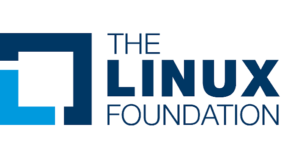SAN FRANCISCO, June 21, 2022 — The Linux Foundation, the nonprofit organization enabling mass innovation through open source, today announced the new Open Programmable Infrastructure (OPI) Project. OPI will foster a community-driven, standards-based open ecosystem for next-generation architectures and frameworks based on DPU and IPU technologies. OPI is designed to facilitate the simplification of network, storage and security APIs within applications to enable more portable and performant applications in the cloud and datacenter across DevOps, SecOps and NetOps.
 Founding members of OPI include Dell Technologies, F5, Intel, Keysight Technologies, Marvell, NVIDIA and Red Hat with a growing number of contributors representing a broad range of leading companies in their fields ranging from silicon and device manufactures, ISVs, test and measurement partners, OEMs to end users.
Founding members of OPI include Dell Technologies, F5, Intel, Keysight Technologies, Marvell, NVIDIA and Red Hat with a growing number of contributors representing a broad range of leading companies in their fields ranging from silicon and device manufactures, ISVs, test and measurement partners, OEMs to end users.
“When new technologies emerge, there is so much opportunity for both technical and business innovation but barriers often include a lack of open standards and a thriving community to support them,” said Mike Dolan, senior vice president of Projects at the Linux Foundation. “DPUs and IPUs are great examples of some of the most promising technologies emerging today for cloud and datacenter, and OPI is poised to accelerate adoption and opportunity by supporting an ecosystem for DPU and IPU technologies.”
DPUs and IPUs are increasingly being used to support high-speed network capabilities and packet processing for applications like 5G, AI/ML, Web3, crypto and more because of their flexibility in managing resources across networking, compute, security and storage domains. Instead of the servers being the infrastructure unit for cloud, edge or the data center, operators can now create pools of disaggregated networking, compute and storage resources supported by DPUs, IPUs, GPUs, and CPUs to meet their customers’ application workloads and scaling requirements.
OPI will help establish and nurture an open and creative software ecosystem for DPU and IPU-based infrastructures. As more DPUs and IPUs are offered by various vendors, the OPI Project seeks to help define the architecture and frameworks for the DPU and IPU software stacks that can be applied to any vendor’s hardware offerings. The OPI Project also aims to foster a rich open source application ecosystem, leveraging existing open source projects, such as DPDK, SPDK, OvS, P4, etc., as appropriate.
The project intends to:
- Define DPU and IPU.
- Delineate vendor-agnostic frameworks and architectures for DPU- and IPU-based software stacks applicable to any hardware solutions.
- Enable the creation of a rich open source application ecosystem.
- Integrate with existing open source projects aligned to the same vision such as the Linux kernel.
- Create new APIs for interaction with, and between, the elements of the DPU and IPU ecosystem, including hardware, hosted applications, host node, and the remote provisioning and orchestration of software.
With several working groups already active, the initial technology contributions will come in the form of the Infrastructure Programmer Development Kit (IPDK) that is now an official sub-project of OPI governed by the Linux Foundation. IPDK is an open source framework of drivers and APIs for infrastructure offload and management that runs on a CPU, IPU, DPU or switch. In addition, NVIDIA DOCA, an open source software development framework for NVIDIA’s BlueField DPU, will be contributed to OPI to help developers create applications that can be offloaded, accelerated, and isolated across DPUs, IPUs, and other hardware platforms.
For more information visit: https://opiproject.org; start contributing here: https://github.com/opiproject/opi.
About the Linux Foundation
Founded in 2000, the Linux Foundation and its projects are supported by more than 1,800 members and is the world’s leading home for collaboration on open source software, open standards, open data, and open hardware. Linux Foundation’s projects are critical to the world’s infrastructure including Linux, Kubernetes, Node.js, Hyperledger, RISC-V, and more. The Linux Foundation’s methodology focuses on leveraging best practices and addressing the needs of contributors, users and solution providers to create sustainable models for open collaboration. For more information, please visit us at linuxfoundation.org.
Source: The Linux Foundation




























































